Episode 39: Cory Webb

Podcast: Play in new window | Download
Subscribe: RSS
Introducing Cory Webb
Cory is a full-stack web developer from Waco, Texas. He’s the author of Beginning Joomla! Website Development. He’s a relative newcomer to WordPress after transitioning from Joomla work. Cory’s married, with three children. He loves public speaking and has given more than 15 talks at Joomla conferences and has now even given one WordCamp talk.
Show Notes
Website | Reactiv Studios
Twitter | @corywebb
Episode Transcript
Liam: This is Hallway Chats, where we talk with some of the unique people in and around WordPress.
Tara: Together, we meet and chat with folks you may not know about in our community.
Liam: With our guests, we’ll explore stories of living – and of making a living with WordPress.
Tara: And now the conversation begins. This is episode 39.
Liam: Welcome to Hallway Chats. I’m Liam Dempsey.
Tara: And I’m Tara Claeys. Today, we’re joined by Cory Webb. Cory is a full-stack web developer from Waco, Texas. He’s the author of Beginning Joomla! Website Development. He’s a relative newcomer to WordPress after transitioning from Joomla work. Cory’s married, with three children. He loves public speaking and has given more than 15 talks at Joomla conferences and is now even giving one WordCamp talk. Welcome, Cory.
Cory: Hi, thanks for having me.
Liam: Hey, Cory. Thanks for joining us today, great to see you. Tell us a little bit more about yourself, please?
Cory: Yeah, I’m a full-stack web developer, which means I do a little bit of everything. I’m from Waco, Texas. For those who are in the know, that’s the home of the Fixer Upper, the popular TV show on HGTV. It also is known for other things that are maybe a little less positive, but we won’t talk about that. I work full-time for a company called Reactive Studios. We are a one of about a dozen WordPress.com VIP partners. I spend my days building and maintaining websites on the VIP platform, and then on other various platforms for companies who use those. I spend most of my day buried in WordPress code.
Tara: I really want to hear about your transition from Joomla to WordPress and your comparison of the two of them. Of course, that’s going to be intriguing for a lot of our listeners who use WordPress. I have used Joomla in the past but I’d love to hear your perspective on the two and what your reason was for transitioning.
Cory: Sure. Actually, the one WordCamp that I did speak at, I talked about WordPress from a Joomla perspective. It’s basically just about how I made the move from being a Joomla guy to being a WordPress guy and generally, they’re kind of the same. They’re both PHP, MySQL-based CMSs, but there’s a lot of differences and the nuances of how they both work. For me, it was a pretty big jump in order to flip the mental switch, I guess, between thinking like a Joomla guy and thinking like a WordPress guy. I don’t like to do value comparisons because, honestly, I think Joomla’s a great platform and I think WordPress is a great platform. I know a lot of people like to try to make value judgments and say, “Oh, WordPress is better because it’s this.” Or, “Joomla’s better because of this.” Honestly, most of the time, yeah, that’s actually true. WordPress is better because of ABC and Joomla is better because of XYZ. They both are good at certain things. It’s just a different platform and different philosophy, and a different way of thinking about things. You just kind of have to jump through some mental hoops to get there, to go between the two. But ultimately, I really like both platforms, I love both communities as well. That’s to me the strength in any open-source platform like that is going to be the community, and I think both have really great strong communities.
Tara: That’s a great overview. Do you miss Joomla?
Cory: I don’t miss it. I still do Joomla work, I still interact with my Joomla friends, people that I have known online for 10 years or more, people that I’ve hung out with at conferences and spent time with and gotten to know through various things. I can’t say that I miss it because I haven’t really left it, so to speak. I’m doing a lot more WordPress work these days. I’m really enjoying that, honestly, I’ve done WordPress stuff for years. But Joomla is one of those things that has paid the bills so I just did more of it. I would love to be able to do Joomla full-time still. But honestly, there’s just not that much of a market for it, at least in the US. In Europe, Joomla’s still pretty big. There’s still a lot of Joomla work and a lot of companies that are doing Joomla stuff, and other parts of the world. Here in the US, not so much. Which it is what it is. I think with anything like that, if you put all your eggs in one basket, that’s kind of your problem, right? It’s to my benefit that I’m able to do both. I’m more of a PHP full-stack Javascript developer than I am a Joomla developer or WordPress developer. The underlying platform is really more– trivial is not the word I’m looking for, but it’s just kind of second.
Tara: Yeah, it’s not as important. It’s good that you can train those skills. Let’s back up for a little bit and talk about what got you started in the first place in programming and that led you to Joomla, what’s your background?
Cory: Yeah, I started tinkering with HTML and web stuff a little over 20 years ago, actually, as a freshman in college at the University of Texas. I was an electrical engineering student and in our introductory class, my freshman year, they said, “Hey, you need to know how to build websites so that you can publish your information about engineering, basically.” So, “Okay, let’s do that.” And I just loved it. It was kind of an instant gratification of building a website. You put down some HTML and then maybe give it a background image and set some colors. Then all of a sudden, you’ve created this thing, it’s there, it’s instant. And I fell in love with it immediately. But it also kind of felt like a toy in a way to me. It didn’t occur to me like, “Oh, that’s something I can pursue and do and make a living at.” So I finished my engineering degree, I went and got a masters degree in business. And then all the while pursuing this hobby of mine of building and designing websites. My wife and I, we would go to bookstores and she would go to the fiction section, she’s an avid reader. She reads a couple of hundred books a year, I think.
Liam: Wow.
Cory: Yeah. And I am not that, but I do love learning in tech books, especially back then. 15 years ago, you didn’t have all the websites and the tools like Lynda.com or some of these other tools that would teach you how to do things. You had to go to the bookstore and actually get a book and read. So she’d go looking at fiction section, I would go to the computer books section and get PHP, MySQL For Dummies, or HTML For Dummies, or Learn HTML in Four Easy Steps, or CSS or whatever. And every new thing you learn is like this great revelation, right? I remember building sites with tables for my layouts and thinking– I remember before that, actually, going– I see this site with columns, like, “How did they make that column there? Oh, they used a table. That’s genius.” Then five years later, I’m like, “Why would anyone use a table for layouts?” So you learn CSS.
Liam: Technology.
Cory: Exactly, right. Just over the years, right? You just continue to learn and continue to pick up new skills and things. Back in 2006, I guess, I was doing this hobby thing and this Joomla company said, “Hey, you’re pretty good at that. You want to make some extra money?” And I was like, “Make money doing my hobby? Okay.”
Liam: “It sounds good to me.”
Cory: Right, exactly. They hired me on to do some side gigs, basically, do some freelance work. And I was making way more money than I had ever thought was even possible. I had done websites for friends before that where I would do it for free or charge them maybe $300 or $100, whatever.
Liam: Rent money.
Cory: Some price that it was like, “We can’t make a living doing that.” When I started making real money doing it, I was like, “Oh, wow. This is something where I could actually maybe make a living doing it.” The freelance work grew to a point where I was like, “Alright, I need to go ahead and quit my job and pursue this full time.” That was the beginning of 2008, when I started my company which is really just me as a freelancer. That grew and I had some employees, especially around the time that my book came out that kind of landed some credibility to my name and gave me a little bit of name recognition. My business grew with that. Anyway, long story short, my team and I got recruited to go work for another big company and then I left that a couple of years go to do freelancing full time. Then this opportunity with Reactive came up, so I’ve been with Reactive Studios now since November, which is as of today about two or three months. And I just really love it, I love working with this team, I’m with some really brilliant developers on my team. I’m learning a lot from them and I’m really enjoying the opportunity to work on some really interesting projects, that’s kind of where I am today.
Liam: That’s quite a journey. Cory, let me ask you this, when you joined Reactive, were you coming on as an experienced full-stack developer and that you would learn WordPress, or had you already been transitioning into WordPress? You were a full-stack developer and so they brought you on in that combination?
Cory: Like I said, I’ve been doing WordPress for years, so it wasn’t new to me. I have certainly learned a lot since I’ve really been digging into it full-time. But I was already to a point where I can build plugins and themes and I understand the API and understand template tags and all the functions, WP Query, all of that kind of stuff. My resume didn’t necessarily show it, right? My resume says Joomla over it.
Liam: Sure, of course. Well, the books, if you write the book, you’re probably not dabbling in Drupal all that much, right?
Cory: Absolutely. In a way, I feel like I was kind of stepping out in faith that one of these WordPress companies would take a chance on a Joomla guy, and fortunately, Reactive did and I feel like it’s been a really good thing. I really loved working with them. But yeah, I did have WordPress experience before that. Like I said, it’s one of those things, too, where I feel like as long as you can do the underlying things like PHP, and databases, and Javascript, and CSS, and HTML, The CMS is sort of secondary, right? There’s a lot of nuances to it that you certainly have to pick up and understand, but it’s a lot easier if the fundamentals are there.
Liam: Yeah, that makes sense. He says as a non-developer, “That makes sense.” You’ve talked to us about your education and your career and how you wrote the book and grew a freelance, and grew into a business, then you joined a wider business, and then a couple of years into that you went back to freelance and now you’re in the employment of another team. And correct me if I’m wrong, but I think Reactive’s a relatively small company, with respect. They’re probably bigger than one or two people but they’re not a 800-person company.
Cory: Certainly not.
Liam: Maybe as you’re reflecting on this, you can share with us your definition of success in either a personal or professional way?
Cory: Personal and professional success, I kind of feel like you can’t have one without the other. I guess I take that more as kind of like a holistic view of life that if I’m successful professionally but not personally, then I’m not successful. There’s a big gap there. But for me, the way I see it, success is being able to do what you love while meeting your obligations and responsibilities without having to compromise the core of who you are. What I used to think success was was making a million dollars and being super wealthy. And that’s one path to it, right? Because if you have a million dollars, you certainly can do whatever you want. But I think for me, I’m doing a job that I love with the team that I really enjoy working with and personally, I have a great family, great wife and kids, and we’re really involved with our church, and really enjoy doing that. We get to travel some and do that which is really fun. And we’re meeting our obligations. We’re paying the bills, we’re doing what we need to do, we still have the ability to kind of do some fun things. And I haven’t compromised who I am as a person, right? A lot of times, Christians will debate with each other whether or not you should put that on your resume or you should let people know that you’re Christian, right? And that goes with any group, right? Don’t anybody know what you’re a Muslim, or don’t anybody know that you’re gay, or that you’re this or that or the other. For me, it’s never been an issue. I never felt like I needed to not be open about who I am, which, obviously, as a Christian in America, that’s easy to do, right? But in some circles, it’s not. Part of that, too, is my background, I have a lot of church experience in my background, too. That’s kind of on my resume and you can’t really hide it. Things like that. It’s like, “Well, this is kind of who I am. This is how I want to treat people. I’m going to treat everybody I meet, everybody I work with, with respect. I’ll treat them the way that I want them to treat me.” So I never had to step on people to get where I am, I’ve never had to belittle people or never had to– you know what I’m saying?
Liam: I get that, I respect that holistic approach where life is holistic in every sense so one can’t have success at home if there’s a disconnect between what’s going on at home and what’s going on at work, and vice versa. And I respect that, that sounds like that’s a very healthy way for you and your family to live. Within that definition of success, what’s the single most important thing you do every day to either achieve or continue that success?
Cory: For me, it’s find ways to get better, find ways to improve. Look for new things to learn, look for ways to improve things that I already know how to do. You can always get better, right? If I’m going to be a web developer, I need to be the best web developer, I need to be the absolute best I can be. And I’m not that, right? I mean, I’m pretty good but I’m not the best that I can be. Tomorrow, I’m going to learn something that I didn’t know today.
Liam: Let me interrupt you with that. Just with resepect to web development, and learn something new or be the best you can. Aside from the client or your colleagues present you with a problem, Cory, we’re trying to bring this functionality and we’re not quite sure what our thought process should be and how to bring it. But if it’s really something that you’ve never encountered before, particular challenge problem, whatever. Where do you go to learn that? How do you go about tackling that? If it’s really something you can’t reach back into your history to, where do you go?
Cory: It really depends on the situation. Currently, I go to my team first because, like I said, I work with some really brilliant developers who have a lot of experience and generally, one of them is probably going to know the answer or is going to at least have some insights as to which direction I should take to solve a certain problem. If that doesn’t work, then there’s Google and there’s Stack Overflow and tools like that. Because there’s a lot of people out there that know the answer or have some insights into how you can figure out the answer. And that’s something that I’ve actually had to overcome because I’m kind of a solve it yourself kind of guy, so if I encounter a problem, I try to solve it myself. It’s been hard for me in the past to reach out and ask someone for help and to say, “Hey, I need help.” Because, ultimately, eventually, I can probably figure it out.
Tara: Yeah, and that’s very satisfying, too, right? When you figure it out on your own. It’s a good feeling.
Cory: Yeah, it definitely is. But it’s also unhealthy, right? Because if it takes me a week to figure it out, when it could have taken me a couple of hours if I had just put my pride aside and asked someone. Then, which is better, right? It kind of depends, too, because sometimes figuring it out yourself helps you understand it better and helps you when the next problem that comes along looks similar, you kind of have a better way of thinking about it.
Tara: Yeah, it may be case-specific but that sounds like something that you’ve given a lot of thought to. When you talk about your Christianity and you talk about solving problems on your own and reaching out to your team, what would you say, mixed in with any of that or not, is the biggest challenge that you face on a day-to-day basis? What’s the biggest challenge that keeps you from maybe being the best you can be?
Cory: True. That’s a great question. I think one of the best challenges that I’ve had in the past is being focused on getting things done I need to get done right now. So much so that I don’t have the opportunity to think long-term or think strategically about what I need to be doing to improve myself going forward. Especially when I own my own business and have pleas and things like that. I was spending time doing things that were more gruntwork or things I just had to get done as opposed to stepping back and taking the time to do the things that I need to do to get better. Part of that, too, was being a Joomla guy. All I ever did was Joomla. So, you spend your day buried in Joomla, you don’t necessarily always get a chance to reach out and learn other things, too. That’s part of it, too, I guess is as much as specialization is a good thing for marketing. I’m a Joomla guy, so anybody’s looking for a Joomla guy, they’re going to come to me. But in terms of becoming a more well-rounded developer, well-rounded person, specialize but also find the time to do the things that you need to do to get better and to improve your skill set and just improve overall as a person.
Tara: Yeah, and I think the key word in there is find the time. I think that’s a challenge that we talk about a lot here. How do you manage your time? What’s your schedule like?
Cory: Right. I work from home, which is great because it’s very flexible. But it’s also terrible because it’s very flexible. Because you can work anytime. When your office is your home, you’re always there, you’re always at work. But I’ve been doing this for about ten years, working from home. And you learn over the years that it’s best to set aside time for the things that need time. Work happens between 8:00 AM and 5:00 PM, and the life happens outside of that. Sometimes life happens inside of that, right? Like, when your son gets sick at school in the middle of a podcast and you’ve got to figure out how to get him picked up, that kind of thing happens, right? But for the most part, I have blocks that were things that are supposed to happen. So work happens eight to five, family time happens five to whenever the kids go to bed. Then, beyond that, I get to hang out with my wife once the kids are in bed and we get to spend time together. And we’re not distracted by other things because this is dedicated time. That’s more or less how I do it, that’s not super detailed.
Liam: Cory, that sounds pretty structured. Sorry to step on your toes. Tara, you want to go ahead?
Tara: No, go ahead. I was just agreeing.
Liam: Okay. Tell me, the schedule that you have now, is that something that you started off doing right away or is that the voice of experience speaking?
Cory: When I started my business and kind of went full time doing this, and even before that, I had one kid and she was a baby. She was about two years old when I started my business. Two-year-olds are pretty easy. I say that, right, I have three kids now so I can say that. But when you have one two-year-old, life is pretty easy. We put her to bed and I always work. I was working all the time. I was getting stuff done and I wrote a book and my business was growing, but I was working all the time. My personal life suffered, I wasn’t able to hang out with my wife as much as I wanted to. I was constantly on the computer doing some work or thinking about work. I learned pretty quickly into that that it’s just not sustainable. You can get a lot done doing the Gary Vaynerchuk, work 18 hours a day and never do anything else, way of life. But for me, it just wasn’t sustainable, it wasn’t something I could keep doing long-term. Then, obviously, we had another kid and then another kid and it’s like, well, now you really don’t have time or the energy to work all that much.
Liam: Sure.
Tara: Yeah. Something we ask everyone on our show, Cory, is what’s the best piece of advice that you have received and implemented in your life?
Cory: That’s a good question. I think the best advice that have probably had, I would say is probably just to keep getting better, keep improving, never be satisfied with the status quo. You’re not as good as you can be right now, and that’s okay. That kind of deals a little bit with imposter syndrome, right? You think, “Man, I’m with these developers that are brilliant and I’m not that good.” It’s like, “That’s okay, but you’ll be better tomorrow, and you’ll be better the next day so just keep improving.”
Liam: That advice of just keep getting better ties back very nicely, then, with your holistic definition of success where you’re working on a personal front to get better and working on a professional front to do the same, that’s nicely succinct.
Tara: Yes, it is.
Liam: I’ll jump in if I can and take us back really just to the start of our conversation around Joomla and WordPress. I’d be really interested to get your thoughts on what the WordPress community could learn from a Joomla community. In a community building kind of sense, what is Joomla community doing really well that maybe the WordPress community might not have just figure out just yet? I mean that in a constructive supportive way?
Tara: Good question.
Cory: Man, that’s a really tough question. In the Joomla community, there’s kind of a sense of banding together to get things done. There’s also this notion that we don’t have this benevolent dictator in Joomla to tell us what to do. We work together to come to a solution. Drupal has Dries. Is that how you say his name? I think it’s how you say it. I’ve known his name for ten years, I still don’t know how to say it.
Liam: I’ve only read it.
Cory: We’ll say Dries. Drupal has Dries, WordPress has Matt, Joomla has the core team. Joomla has the community. There’s kind of this notion that, if I don’t step up and do it, it’s not going to get done. Which, I don’t think WordPress lacks in that. I think WordPress certainly has plenty of individuals. I was at WordCamp US in Nashville and there was the community contributor day, and on the last day, there were hundreds of people in the room there to contribute. Like, “Hey, what can I do? Where can I go?”
Tara: I suppose that Joomla benefits and suffers from its much smaller use, smaller audience and community. I imagine the community is way smaller than WordPress because the percentage of use is way smaller. That’s probably helpful in some ways, like you said, from a maybe bureaucratic standpoint, but you also have less manpower or woman power.
Liam: People power.
Cory: Absolutely. The scale is a problem. In WordPress, you’ve got thousands of people coming to WordCamp US, whereas in Joomla, our biggest conference has 300 people. WordPress, you have random WordCamps in cities throughout the year that have 400-500-600 people. That makes it hard but it also makes a little bit of a more tight-knit community in some ways because you know everybody. WordPress, you kind of can’t know everybody because there’s just so many people. It’s tough to say because it’s just two different beasts altogether. WordPress being so large and having so many resources and so many people behind it, they’re clearly doing things right and doing something right. Joomla’s still trekking along, it’s kind of like the little engine that could. It’s still going, it’s still a great platform, it’s still improving. If you haven’t checked it out recently, they’re doing some really cool stuff with it.
Tara: What’s it primarily used for? Does it have an industry-specific focus?
Cory: That’s part of the problem, right? Joomla’s never really had a focus, it’s never had a target. It’s been kind of like, “Okay, WordPress is the easy one. Drupal’s the hard one and Joomla’s kind of somewhere in the middle.” But there’s not really much to the focus of, like, “Oh, we really target this industry.” It’s just, anybody that needs a CMS. Which, unfortunately, for Joomla, anybody that needs a CMS is probably going to use WordPress.
Tara: I appreciate all this information that I don’t think either of us intended this to be like Joomla versus WordPress conversation but you probably hear that all the time.
Cory: True.
Tara: We appreciate you sharing it with us and with our audience because it is really interesting as a comrade Joomla user, especially. Thanks for sharing all that with us and thanks for sharing your ideas about success and your story, it’s really been a pleasure chatting with you. We are just about of time here. Would you share with everyone where they can find you online, please?
Cory: Yeah, absolutely. My Twitter handle is @corywebb.
Tara: Okay, I have to jump in and ask the question. Webb as the last name. I mean, I know there’s two Bs. That’s the first thing. We had another guest on here, his name was Cory and his Twitter handle or his website is @coryweb with one B.
Cory: I saw that.
Tara: You get a lot of pun jokes about that?
Cory: I’ve been accused of actually making the name up for my career. It’s like getting Homes who is a home builder. I always use Wolf Blitzer as an excuse. He was like a war correspondent and his name is Wolf Blitzer, you’ve got to believe that’s not his name. But maybe it is, I don’t know. Cory Webb is actually my name.
Tara: Okay.
Cory: My parents are named Webb, my brothers are named Webb.
Liam: We believe you. But if there is a Cory Webb out there with three Bs, we’d invite that one on, too.
Cory: Yeah.
Liam: Cory, thanks so much for joining us today out here in the hallway, it was a great time, thanks so much.
Tara: Thank you, Cory.
Cory: Thank you for having me, I appreciate it.
Liam: Bye-bye, for now.
Tara: If you like what we’re doing here – meeting new people in our WordPress community – we invite you to tell others about it. We’re on iTunes and at hallwaychats-staging.ulpgsyz6-liquidwebsites.com.
Liam: Better yet, ask your WordPress friends and colleagues to join us on the show. Encourage them to complete the “Be on the show” form on our site, to tell us about themselves.
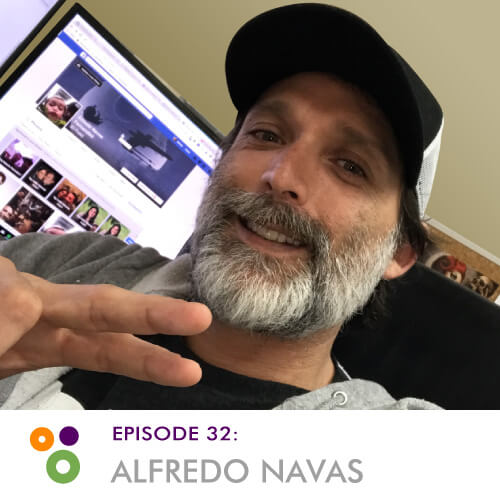
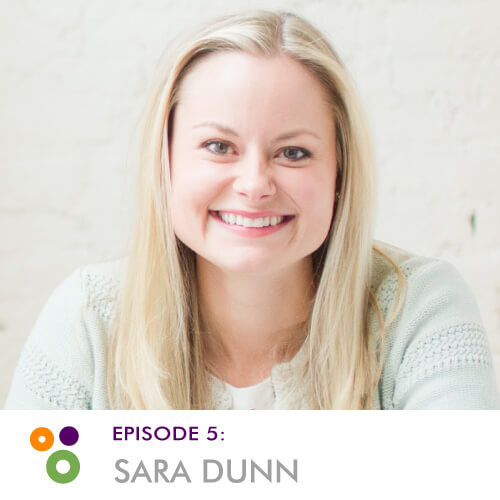
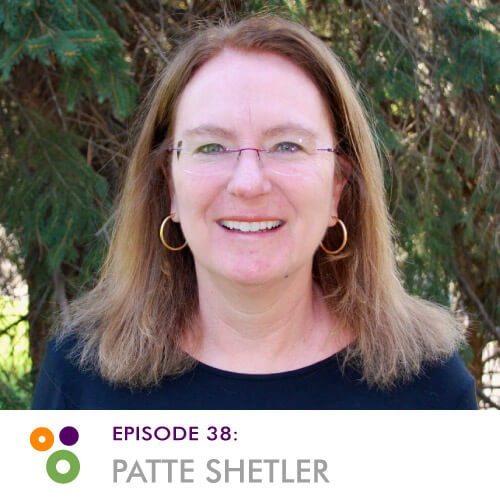
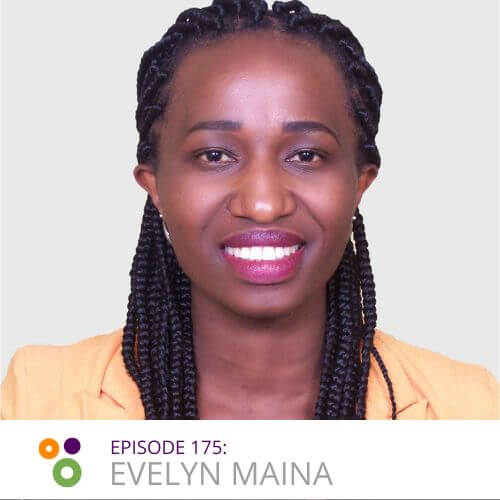

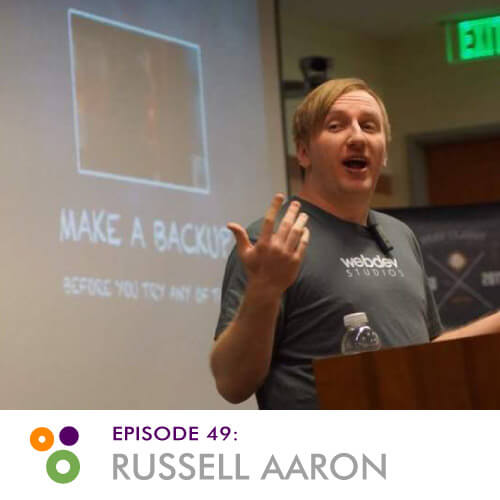
This was a lot of fun! Thank you for having me on!
Thank you for joining us and sharing your story, Cory!